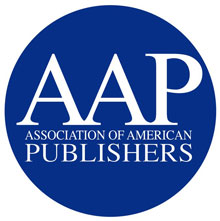Back To News
December 6, 2023
Publishers Submit Reply Comments to Copyright Office in Artificial Intelligence Proceeding

There Should be No Free Pass for Multi-billion Dollar AI Companies Engaged in Mass Copying of Authorship Without Consent
The Association of American Publishers today filed reply comments in the U.S. Copyright Office inquiry into the intersection of copyright law and artificial intelligence (AI) in response to flawed and inaccurate assertions submitted by some tech companies and/or their investors in the first comment round including tired assertions that the rights of authors and publishers are an obstacle to innovation.
AAP filed a lengthy submission that includes the following points:
- Big tech petitions the government “for cover from liability for their calculated disregard of authorship, also ignoring that rights holders today already routinely license their works for all kinds of digital uses.”
- “Rather than working with copyright owners, these companies seek to appropriate literature and other invaluable intellectual property for their own commercial gain, and to bend the law to their will. Government should have no role in bestowing commercial advantages to AI companies at the expense of authors, publishers, and other creators.”
- “The companies that benefit from the commercialization of this technology should be required not only to compensate rights holders for their past ingestion of copyrighted works to train Gen AI systems but also for their ongoing and future use of protected works to train new Gen AI systems or fine-tune their existing products.”
- “Gen AI developers are not struggling “start-ups” that need a boost from the government. They count among their investors some of the largest and most profitable technology companies in the world and are valued, in some instances, between $80-90 billion dollars. There is absolutely no public policy reason to create legal immunities for such companies, who face only the reasonable requirement that they seek the consent of, or licenses from, rights holders whose works they use for training their Gen AI systems.”
- “It would be a grave error to repeat the past policy mistakes that allowed technology companies to achieve such an unhealthy, monopoly-like market dominance to the point that governments have struggled to curb their power, despite repeated attempts to moderate their aggressive marketplace tactics.”
- “The issue of national security is certainly of deep concern to all American citizens, particularly where bad actors may use AI and Gen AI systems to sow misinformation or disinformation that undermine our democratic institutions and create other national security risks. This possibility points to the even greater need for authors and publishers that produce and disseminate vetted, fact-checked quality content. Advancing the nation’s technological and economic agenda is not a zero-sum game, and it should not become a race to the bottom.”
- “Transparency is an essential requirement. It is in the public interest to know what works of authorship have been ingested and an essential part of seeking proper consent to have such information clearly recorded. Such a requirement is not burdensome and lends itself to further innovation in the field of digital rights enterprises.”
- “[I]n no case does the Copyright Act permit unauthorized access to or acquisition of copyrighted works. Lawful access to authorized sources matters. A human is not permitted to illegally reproduce and download 183,000 copyrighted works (the number of infringing titles estimated in the “Books3” corpus) in order to read or learn from them.”
- The complete text of AAP’s reply comments can be found here.
